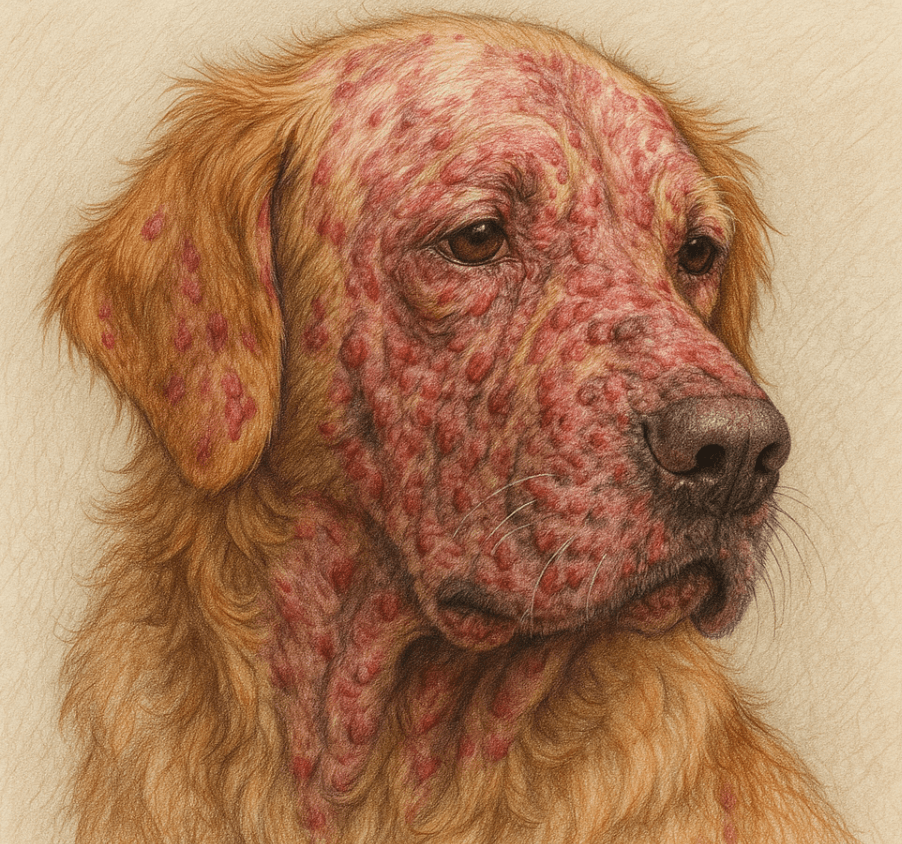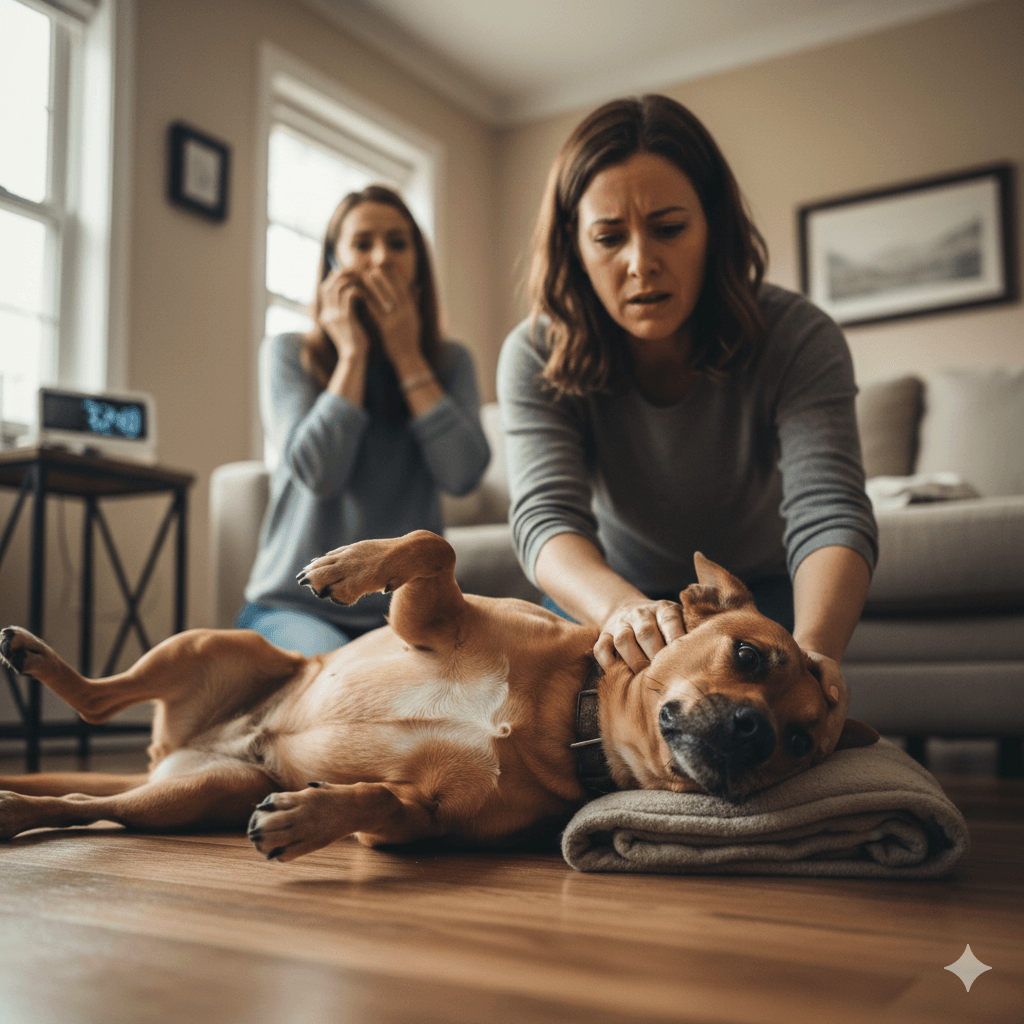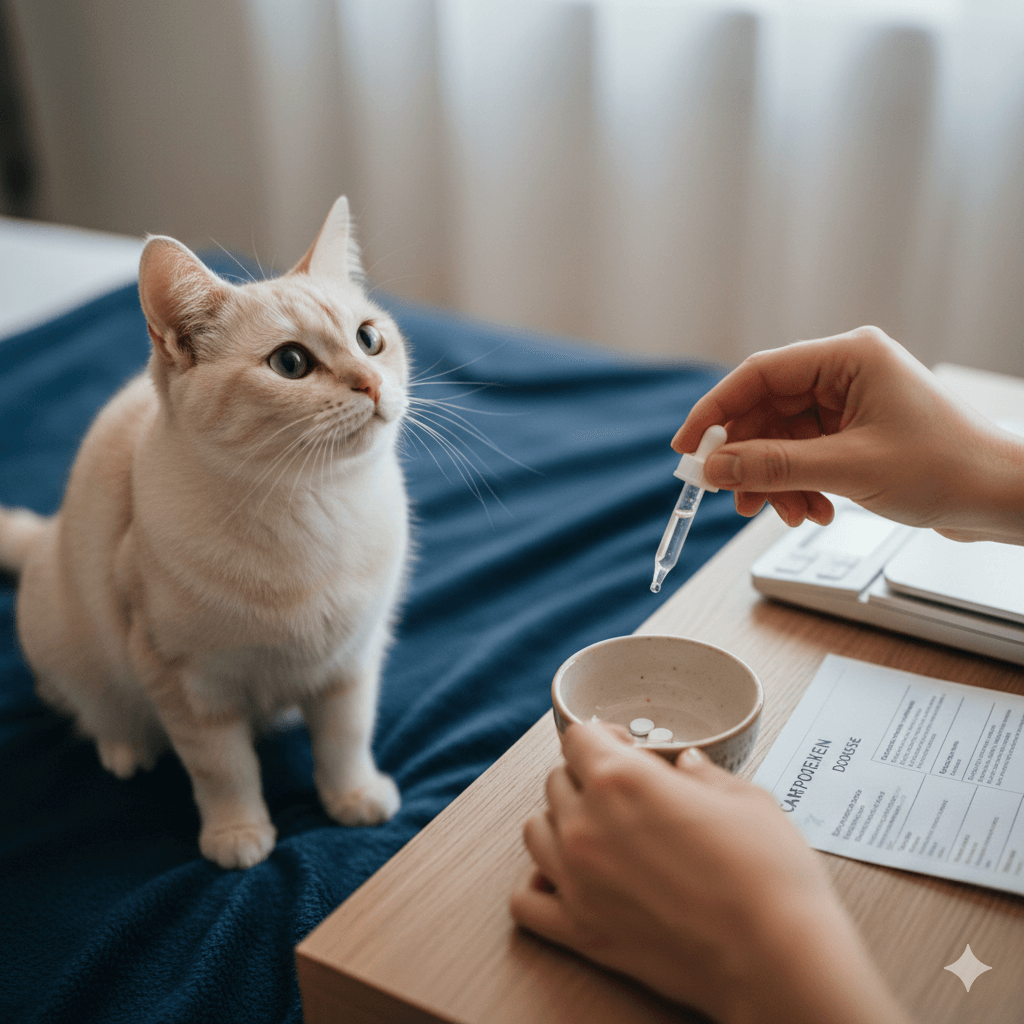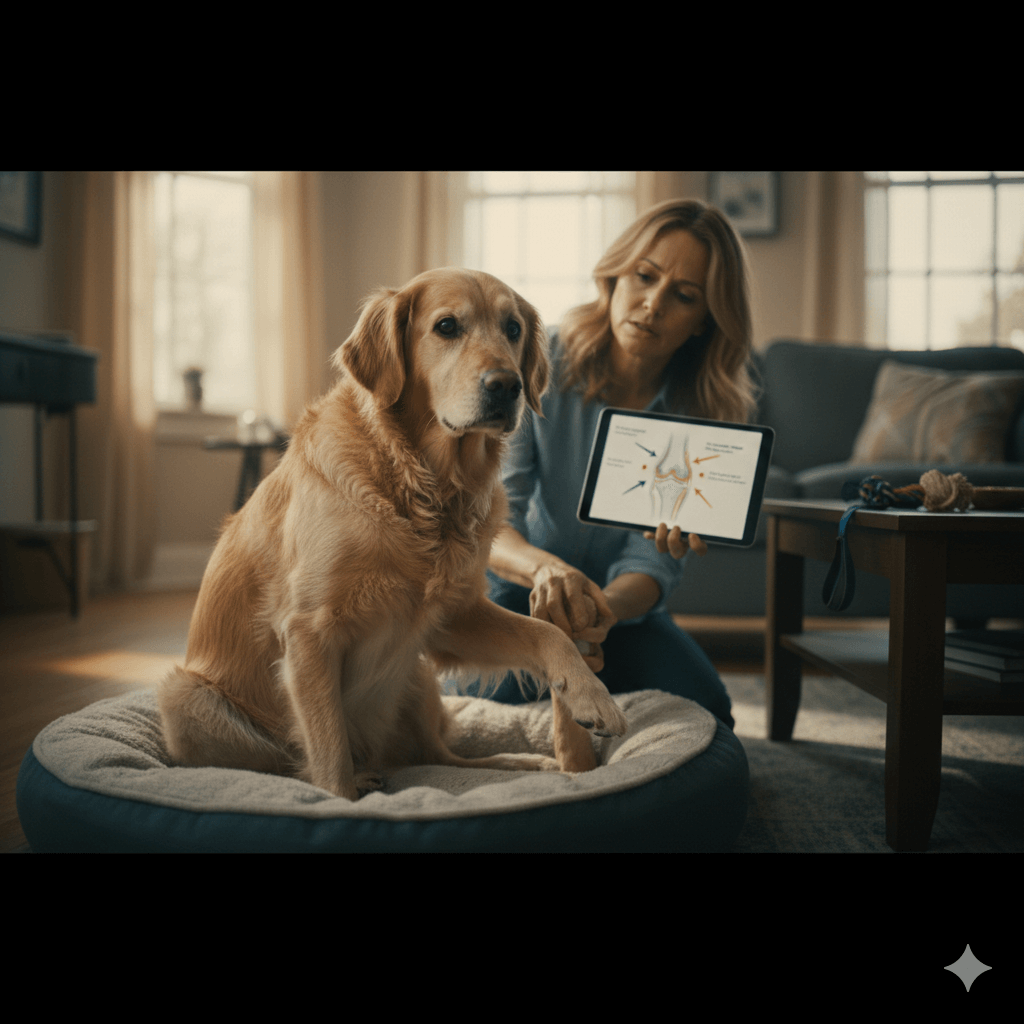Golden Retriever Skin Issues: What Every Owner Should Know
Golden Retrievers are beloved for their friendly personalities, intelligence, and luscious coats. However, beneath that beautiful exterior, many Golden Retrievers struggle with skin issues that can affect their comfort and overall health. From allergies to infections, these conditions are common in the breed due to genetic predispositions and environmental factors. Understanding the causes, symptoms, and treatments for Golden Retriever skin issues is essential for ensuring your furry friend stays happy and healthy. In this blog post, we’ll explore everything you need to know about managing and preventing skin problems in this wonderful breed.
Common Skin Issues in Golden Retrievers
Golden Retrievers are prone to a variety of skin issues, many of which stem from their genetic makeup or environmental triggers. Here’s a breakdown of the most frequently encountered problems.
Allergies (Environmental and Food):
Golden Retrievers often suffer from allergies triggered by pollen, dust mites, or certain foods like chicken or beef. These allergies cause itching, redness, and inflammation.Hot Spots:
These painful, inflamed patches of skin develop due to excessive licking or scratching, often caused by underlying allergies or insect bites.Flea Allergy Dermatitis:
Even a single flea bite can trigger an allergic reaction in sensitive Golden Retrievers, leading to intense itching and hair loss.Yeast Infections:
Yeast overgrowth on the skin, particularly in the ears or between paw pads, results in a musty odor, itchiness, and irritation.Seborrhea:
This condition causes dry, flaky skin or oily, greasy patches, making the coat appear unkempt and uncomfortable for the dog.
By recognizing these common skin issues early, you can take steps to address them before they worsen and impact your Golden Retriever’s quality of life.
Symptoms of Skin Issues in Golden Retrievers
Identifying skin problems in your Golden Retriever early can make treatment more effective. Look out for these telltale signs that indicate something may be wrong.
Excessive Scratching or Licking:
Persistent scratching or licking, especially in specific areas, suggests irritation or discomfort.Hair Loss or Bald Patches:
Patches of missing fur often signal underlying skin infections, allergies, or hormonal imbalances.Redness or Swelling:
Inflamed skin or swollen areas may point to infections, allergies, or insect bites.Unpleasant Odor:
A strong, musty smell coming from the skin or ears could indicate yeast or bacterial infections.Dry or Flaky Skin:
Excessive dandruff or dryness might be a sign of seborrhea, poor nutrition, or dehydration.
If you notice any of these symptoms, it’s important to consult a veterinarian to determine the root cause and begin appropriate treatment.
Check this guide 👉Are Golden Retrievers Aggressive? Best 7 Expert Tips!
Check this guide 👉Do Golden Retrievers Shed? Best 7 Expert Tips!
Check this guide 👉Are Golden Retrievers Hypoallergenic? Best 7 Expert Tips!

Preventive Measures for Skin Health | Common Treatments for Skin Issues |
|---|---|
Regular grooming and brushing | Medicated shampoos for itching or infections |
Balanced diet rich in omega-3 fatty acids | Antihistamines for allergy relief |
Flea and tick prevention programs | Antibiotics for bacterial infections |
Keeping ears clean and dry | Topical creams for hot spots |
Reducing exposure to allergens | Dietary changes for food allergies |
How to Prevent Skin Issues in Golden Retrievers
Prevention is key when it comes to managing skin health in Golden Retrievers. By taking proactive measures, you can reduce the likelihood of skin problems developing or recurring.
Maintain a Consistent Grooming Routine:
Brush your Golden Retriever regularly to remove dead hair, dirt, and allergens from their coat.Feed a High-Quality Diet:
Choose dog food formulated with omega-3 and omega-6 fatty acids to promote healthy skin and a shiny coat.Use Flea and Tick Prevention:
Apply vet-recommended flea and tick treatments year-round to protect against parasites that irritate the skin.Bathe Only When Necessary:
Over-bathing can strip the skin of natural oils; use a gentle, hypoallergenic shampoo when bathing is needed.Minimize Exposure to Allergens:
Keep your home free of dust, mold, and other allergens that could trigger reactions in sensitive dogs.
By incorporating these preventive strategies, you can help keep your Golden Retriever’s skin healthy and irritation-free.
When to See a Veterinarian for Skin Issues
While some skin issues can be managed at home, others require professional veterinary care. Knowing when to seek help ensures your Golden Retriever receives timely treatment.
Persistent Symptoms:
If itching, redness, or hair loss persists despite home care, it’s time to consult a vet.Signs of Infection:
Oozing sores, pus, or foul-smelling discharge indicate an infection that needs medical attention.Behavioral Changes:
Lethargy, irritability, or loss of appetite may signal discomfort caused by serious skin conditions.Ear Problems:
Recurring ear infections or head shaking should prompt a vet visit to rule out underlying issues.Sudden Onset of Symptoms:
Rapid development of skin issues, such as swelling or hives, could indicate an allergic reaction requiring immediate care.
Don’t hesitate to reach out to your veterinarian if you’re unsure about the severity of your dog’s condition.
Tips for Managing Seasonal Skin Issues in Golden Retrievers
Seasonal changes can exacerbate skin problems in Golden Retrievers. Here are some tips to help manage these challenges during different times of the year.
Spring Allergies:
During spring, pollen levels rise, triggering allergic reactions. Use air purifiers indoors and wipe your dog’s paws after walks.Summer Heat:
Hot weather increases the risk of hot spots and yeast infections. Keep your dog cool and dry, especially after swimming.Fall Mold and Dust:
As leaves decay, mold spores become more prevalent. Limit outdoor play in damp areas and clean your home thoroughly.Winter Dryness:
Cold air and indoor heating can dry out your dog’s skin. Use a humidifier and apply a pet-safe moisturizer if needed.Year-Round Flea Control:
Fleas thrive in warm climates and indoors, so maintain flea prevention regardless of the season.
By adapting your care routine to the seasons, you can minimize seasonal skin flare-ups.
Dietary Adjustments to Improve Skin Health
Your Golden Retriever’s diet plays a crucial role in maintaining healthy skin. Consider these dietary adjustments to support their skin and coat.
Add Omega-3 Fatty Acids:
Supplements like fish oil or flaxseed oil reduce inflammation and promote a shiny coat.Switch to Hypoallergenic Food:
For dogs with food allergies, hypoallergenic diets can eliminate common triggers like chicken or wheat.Incorporate Probiotics:
Probiotics improve gut health, which in turn supports immune function and reduces allergic reactions.Avoid Fillers and Artificial Ingredients:
Low-quality ingredients can irritate sensitive skin; opt for natural, whole-food-based options instead.Ensure Proper Hydration:
Dehydration can worsen dry skin; always provide fresh water and encourage drinking.
A balanced diet tailored to your dog’s needs can significantly improve their skin health.
Grooming Tips for Maintaining Healthy Skin and Coat
Regular grooming is essential for preventing and managing skin issues in Golden Retrievers. Follow these tips to keep their coat and skin in top condition.
Brush Daily During Shedding Seasons:
Frequent brushing removes loose hair and prevents mats, which can trap moisture and bacteria.Check Ears Weekly:
Inspect and clean your dog’s ears to prevent wax buildup and infections, especially if they swim often.Trim Hair Around Paws:
Excess hair between paw pads can harbor dirt and moisture, increasing the risk of irritation or infection.Use Gentle Products:
Avoid harsh chemicals in shampoos and conditioners; choose products specifically designed for sensitive skin.Monitor Skin After Grooming:
Look for redness, bumps, or irritation after grooming sessions to catch potential issues early.
With consistent grooming habits, you can maintain your Golden Retriever’s skin and coat health while strengthening your bond.
Frequently Asked Questions About Golden Retriever Skin Issues
Why does my Golden Retriever scratch so much?
Excessive scratching is often caused by allergies, fleas, or dry skin. Identifying the trigger is key to finding relief.
Can diet affect my Golden Retriever’s skin?
Yes, poor nutrition or food allergies can lead to skin problems. A balanced diet rich in essential fatty acids supports skin health.
Are Golden Retrievers prone to skin cancer?
While not extremely common, Golden Retrievers can develop skin tumors. Regular check-ups help catch abnormalities early.
How often should I bathe my Golden Retriever?
Bathing every 4-6 weeks is usually sufficient, but avoid over-bathing to prevent drying out their skin.
What can I do about my Golden Retriever’s dry skin?
Increase hydration, use a moisturizing conditioner, and consider adding omega-3 supplements to their diet.
Caring for Your Golden Retriever’s Skin: A Commitment Worth Making
Skin issues are a common challenge for Golden Retriever owners, but with proper care and attention, they can be effectively managed. By understanding the causes, recognizing symptoms, and implementing preventive measures, you can ensure your furry companion enjoys a comfortable and itch-free life. Remember, your Golden Retriever relies on you to advocate for their health and well-being—so don’t hesitate to seek professional advice when needed. With love, patience, and dedication, you can keep your Golden Retriever’s coat shiny, their skin healthy, and their tail wagging happily.
Dog Seizure Symptoms: Best 7 Expert Tips! – Learn to spot signs, respond effectively, and manage seizures in dogs for a healthier, happier life.
Carprofen Dosage for Cats: Best 7 Expert Tips! – Learn safe dosing, risks, and alternatives to manage pain and inflammation in cats effectively.
Africanis Dog Breed: Best 7 Expert Tips! – Explore the resilience, loyalty, and adaptability of this ancient African breed, perfect for diverse lifestyles.
Cruciate Ligament Injury Symptoms in Dogs: Best 7 Tips! – Discover key signs like limping, swelling, and joint instability to ensure prompt treatment.




